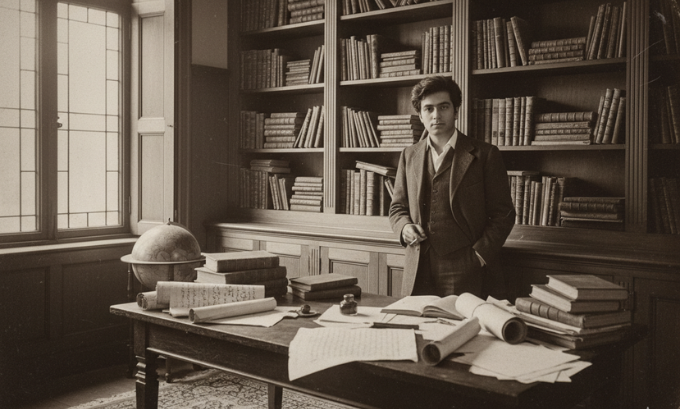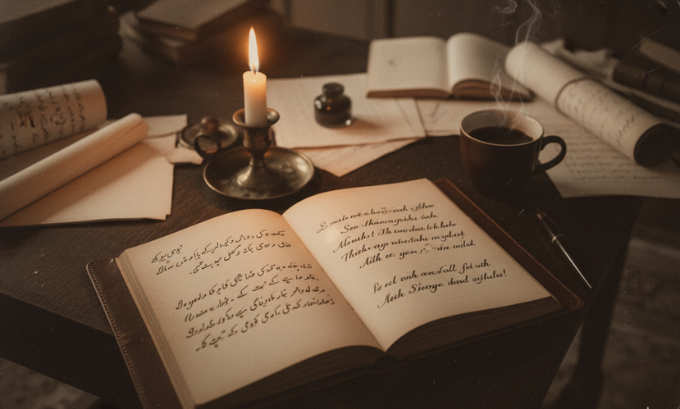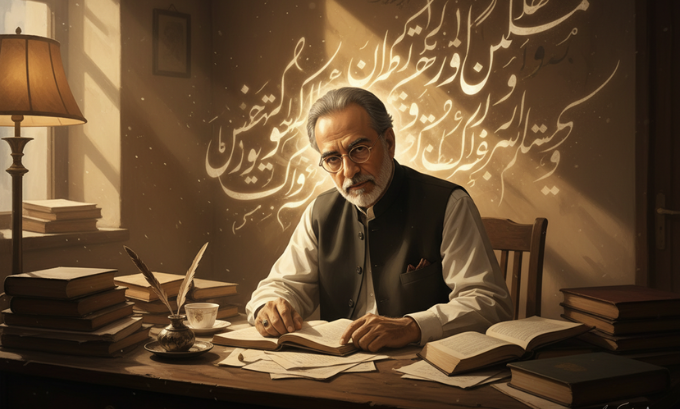Jaun Elia remains one of the most iconic Urdu poets of the 20th century, whose words continue to resonate across generations. Known for his philosophical depth, raw emotions, and rebellious tone, Jaun Elia shayari captures the beauty and pain of human existence. His poetry is not merely an artistic expression—it is a reflection on love, sorrow, and the absurdities of life.
Whether you’re exploring top shayari on life or looking for heartfelt romantic verses in love shayari, Jaun Elia’s work remains relevant and timeless. Even if you are new to Urdu poetry, discovering his shayari in English or Hindi transliterations allows you to connect deeply with his themes of existential angst and romantic despair.
If you want to explore more about Jaun Elia and his contributions to Urdu literature, you may visit this site: LinkLuminous. It provides curated articles, collections, and resources for poetry enthusiasts.
Table of Contents
Who Was Jaun Elia? A Literary Rebel
Born Syed Hussain Sibt-e-Asghar Naqvi on December 14, 1931, in Amroha, India, Jaun Elia grew up in a household immersed in literature. His father, a scholar fluent in multiple languages, and his brothers, journalists and poets themselves, cultivated a rich intellectual environment. This early exposure shaped his command over Arabic, Persian, English, Hebrew, and Urdu, forming the foundation of his poetic genius.
After migrating to Karachi in 1957, Jaun Elia carried the weight of exile, personal loss, and philosophical inquiry into his work. Themes of sad shayari on life and introspection dominate his poetry, reflecting a man deeply engaged with both love and the inevitable suffering of existence.
Despite writing prolifically, his first collection, Shayad, was published only in his sixties, reflecting both perfectionism and indifference to recognition. Subsequent collections like Ya’ani, Gumaan, Lekin, and Goyaa were released posthumously, securing his place as a pillar of modern Urdu literature.

The Core of Jaun Elia’s Poetry: Themes and Emotions
Jaun Elia’s poetry transcends traditional boundaries. His work can be grouped into major thematic streams, each of which touches upon universal aspects of life, love, and rebellion.
1. The Complexity of Love (Ishq)
Jaun Elia’s approach to love is far from conventional. His love shayari explores desire, separation, unrequited emotions, and existential reflections. Unlike the romanticized versions found in mainstream poetry, his couplets reflect a love intertwined with pain and intellectual reflection.
For instance:
kitnī dilkash ho tum kitnā dil-jū huuñ maiñ
kyā sitam hai ki ham log mar jā.eñge
(How enchanting you are, how heart-stealing I am, What a tragedy that we mortals will die.)

This couplet combines beauty with melancholy, capturing the fleeting nature of passion and life. Similarly:
saarī duniyā ke ġham hamāre haiñ
aur sitam ye ki ham tumhāre haiñ
(All the sorrows of the world are mine—and the cruelty is, that I belong to you.)
Readers often seek Punjabi top shayari or top shayari in Hindi to compare the emotional depth and cultural richness of Jaun Elia’s love poetry across languages.
2. Sorrow and Existential Reflection
Sadness is a recurring motif in Jaun Elia shayari. His verses often explore grief, isolation, and the weight of living:
jo guzārī na jā sakī ham se
ham ne vo zindagī guzārī hai
(The life that I could not endure, that is the life that I have lived.)
This is why sad shayari on life remains highly popular among readers who identify with his profound melancholy. His poetry is a mirror for anyone grappling with loss, exile, or the futility of worldly attachments.
3. Rebellion and Intellectual Defiance
At his core, Jaun Elia was a rebel. His poetry questions societal norms, religion, love, and even his own existence. His wit and irony offer a philosophical challenge to conventional thought:
maiñ bhī bahut ajiib huuñ itnā ajiib huuñ ki bas
ḳhud ko tabāh kar liyā aur malāl bhī nahīñ
(I am truly strange, so strange indeed—I destroyed myself, yet feel no regret.)
Readers interested in exploring modern attitude shayari will find his rebellious verses both inspiring and intellectually stimulating.
4. Humor and Irony
Even amidst his existential angst, Jaun Elia injects humor and self-awareness:
kaun is ghar kī dekh-bhāl kare
roz ik chiiz TuuT jaatī hai
(Who will look after this house? Every day, something breaks.)
These lines reflect both the absurdity and impermanence of life, showing how his wit balanced his melancholic philosophy.
Experiencing Jaun Elia: My Personal Journey
I first encountered Jaun Elia shayari through a two-line shayari shared by a friend: “Yun jo takta hai aasmaan ko tu, koi rehta hai aasmaan mein kya?” The line’s audacious questioning of existence left a deep impression.
Later, I explored shayari in English, top shayari in Hindi, and PDFs of his books, which revealed a linguistic and emotional depth I hadn’t anticipated. The combination of love, sorrow, and rebellion in his work made his poetry feel both personal and universal.
Why Readers Gravitate Towards Jaun Elia’s Shayari
- Intellectual Depth: His background in philosophy, history, and literature is evident in every line.
- Emotional Honesty: His poetry explores raw, unfiltered human experiences.
- Mastery of Language: A fusion of classical ghazal forms and modern sensibilities.
- Universal Appeal: His themes of love, loss, and existential angst resonate across cultures.
- Shareable Format: His two-line shayari are perfect for digital sharing and social media.

Challenges for New Readers
- Language Barrier: Understanding the nuances of Urdu shayari can be challenging without fluency.
- Dense Philosophical Allusions: Many references to Sufism, Islamic history, and Western philosophy require context.
- Overwhelming Nihilism: His constant focus on despair can be emotionally heavy for casual readers.
- Navigating Authentic Sources: PDFs and online content are often misattributed or pirated. Official collections like Shayad or Ya’ani are recommended.
Jaun Elia Shayari Across Languages
| Format | Description | Best For |
|---|---|---|
| Urdu | Original text in Perso-Arabic script | Fluent Urdu readers seeking poetic authenticity |
| Hindi | Transliterated or translated into Devanagari | Hindi readers who understand Urdu vocabulary |
| Roman English | Urdu words in Roman script | Readers familiar with spoken Urdu/Hindi |
| English | Full translation | Global audience without Urdu/Hindi knowledge |
Even if the rhythm and rhyme are slightly lost, shayari in English helps readers appreciate the depth of his work.
Where to Explore Jaun Elia Shayari
If you want to know more about Jaun Elia, you may visit Shayari News, which offers curated collections, translations, and insights on his poetry. From romantic to existential, sad to rebellious, these resources help readers explore the full spectrum of his work responsibly.
Other reliable sources include:
- Punjabi Top Shayari for regional perspectives
- LinkLuminous for research-oriented articles
- Love Shayari for romance-focused collections
- Attitude Shayari for rebellious tone and wit
- Sad Shayari for existential reflection
- Top Shayari in Hindi for Hindi readers
- Shayari The Heartbeat of Indian Poetry for historical context
- Shayari in English for global audiences
These links will guide you through authentic works and enrich your understanding of his poetry.
Frequently Asked Questions (FAQ)
Q1: What is Jaun Elia most famous for?
A: He is celebrated for his philosophical Urdu shayari, blending classical ghazal forms with existential themes of love, loss, and rebellion.
Q2: Where can I read his work in Hindi?
A: Visit Top Shayari in Hindi for authorized collections and translations.
Q3: Can I find PDFs of his books?
A: Some PDFs exist online, but many are pirated. For authenticity, check LinkLuminous or purchase official collections.
Q4: What makes his romantic shayari unique?
A: His love shayari explores pain, separation, and the futility of desire, often with a philosophical undertone.
Q5: Can I enjoy his poetry in English?
A: Yes, translations such as Shayari in English help non-Urdu readers access the emotions and ideas in his work.
Q6: What is a “two-line shayari”?
A: A self-contained couplet that delivers profound meaning in two lines. Examples appear in Top Shayari on Life.
Q7: Is Jaun Elia considered a sad poet?
A: Many of his verses reflect sad shayari on life, shaped by personal loss and philosophical reflection, but his work also contains wit, rebellion, and love.
Conclusion: The Enduring Legacy of Jaun Elia
Reading Jaun Elia shayari is a journey through love, sorrow, rebellion, and intellectual inquiry. Whether you explore his works in Urdu, Hindi, Roman English, or full English translations, his poetry offers a profound mirror to human experience. From a single two-line shayari to complete collections, his verses continue to inspire, challenge, and resonate across generations.
For those eager to dive deeper, explore Shayari News and LinkLuminous. These sites offer authentic resources and curated collections that honor Jaun Elia’s legacy while guiding new readers responsibly.

